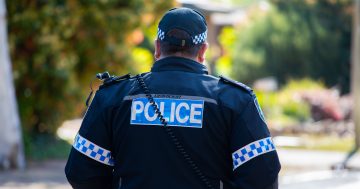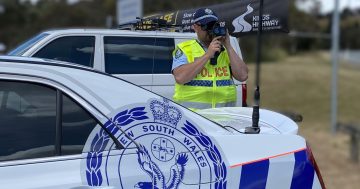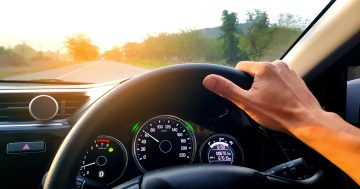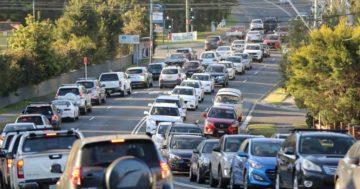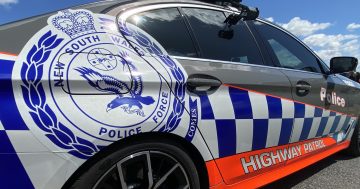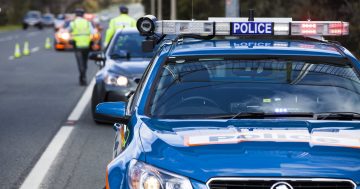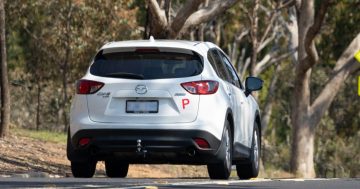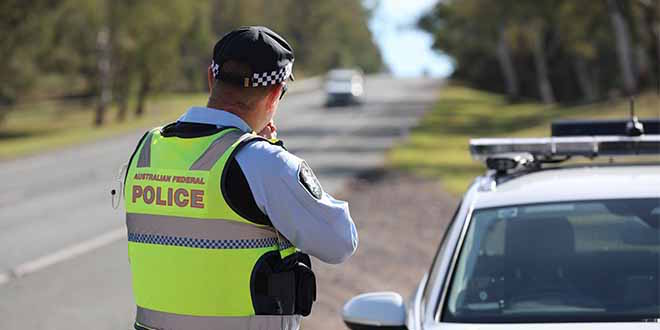
Double demerits kicked off last night in the ACT and NSW. Photo: Supplied.
Double demerits have begun across NSW and the ACT, lasting until 11:59 pm on Monday (12 June).
The statewide operation targets excessive speed, alcohol and drug driving, fatigue, seatbelt and distracted driving offences.
Traffic and Highway Patrol Command Acting Assistant Commissioner David Waddell said this was traditionally one of the busiest times of the year on the state’s roads, so officers would be out in force.
“Many people will be undertaking long-distance driving to see family and friends and I would like to remind them to ensure they have had sufficient rest before undertaking these journeys,” he said.
“If you’re feeling fatigued, don’t fight it, just pull up and have a sleep or swap drivers.
“Driving fatigued is just as dangerous as driving impaired under the influence of alcohol and drug use which we will also be targeting. On a daily basis, we are detecting drivers affected by alcohol and drugs.”
Transport for NSW Chief of the Centre for Road Safety Bernard Carlon said it was critical to plan your trip and drive to the conditions this long weekend.
“We encourage anyone getting behind the wheel of a motor vehicle this weekend to give yourself plenty of time, stay focused on the road, wear your seatbelt, and don’t drink and drive,” he said.
“It’s not just your life you are endangering, it’s the lives of others.”
In the ACT, speeding, seatbelt, mobile phone offences and riding without wearing a helmet will attract double demerits as well.
All other traffic offences will incur an additional demerit point.
Officer in Charge of ACT Road Policing Acting Inspector Ken Williams urged everyone to take extra care on the roads this weekend, especially those travelling interstate.
“We always see an exodus from the ACT on long weekends, so if you are travelling interstate remember to drive to the conditions and take regular breaks,” he said.
“Here in the Territory, the message is simple – we want to see people doing the right thing. Slow down, obey the speed limit, and if you are drinking across the weekend, please don’t drive. Find an alternate way to get home.
“Police don’t want to be handing out infringements, but we will if we see drivers disobeying the road rules.”
Members of the public can report motorists engaged in dangerous driving to Crime Stoppers on 1800 333 000.
Original Article published by Claire Fenwicke on About Regional.









